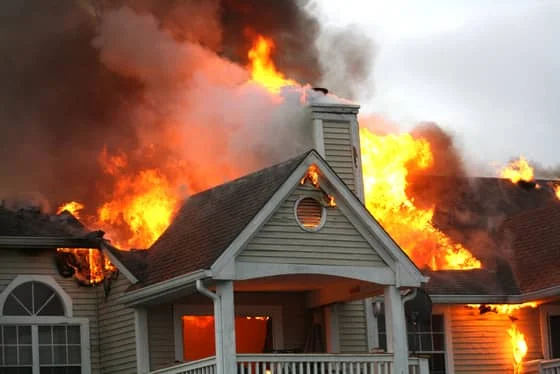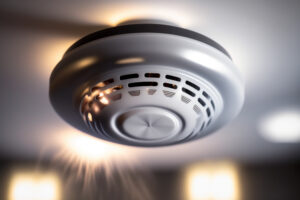Within the real estate sector, smoke detectors might not initially appear to be a priority; nonetheless, they can be pivotal in determining the success of your home sale. This raises the question: can you sell a house without smoke detectors? Whether you are a veteran seller or attempting this for the first time, it is vital to appreciate the role that smoke detectors play. This blog explores the feasibility of selling a house without these essential devices, highlighting their crucial function in the transaction.
The Unseen Protector in Home Safety
Smoke detectors play a crucial role in enhancing home safety. They serve as an early detection system, alerting individuals to the onset of smoke or fire and thereby protecting lives. However, when considering the sale of a home, a pertinent question emerges—Can you sell a property without including smoke detectors? It is vital to comprehend that the role of these devices extends beyond mere compliance; it is fundamentally about ensuring a safe living environment for subsequent residents.
Legal Requirements for Smoke Detectors in Home Sales
The intricacies of legal standards concerning smoke detector requirements can prove difficult to manage, as these standards differ significantly from federal to state and local regulations. There is no singular federal law applicable to all, yet many states have implemented explicit requirements concerning smoke detectors in real estate transactions. For instance, California requires smoke alarms in each bedroom, while New York enforces regulations mandating their presence outside of all sleeping areas.
Ignoring these requirements can result in grave consequences. Sellers may encounter penalties or face legal issues if the property is lacking the requisite smoke detectors. Additionally, non-compliance during a transaction can compromise the agreement, delaying the process or even preventing the sale from occurring.
Potential Risks and Liabilities of Selling Without Smoke Detectors
The sale of a home without smoke detectors subjects sellers to various risks and potential liabilities. This raises the question: can you sell a house without smoke detectors? From a legal perspective, sellers could be held accountable for incidents resulting from the absence of smoke detectors. Moreover, this omission might affect home insurance coverage, possibly leaving sellers exposed to significant financial losses should such events occur.
Buyers, understanding these risks, might negotiate for lower prices, ask for additional guarantees, or, in a more serious situation, choose to exit the deal. The failure to install smoke detectors can create alarm, potentially leading to legal disputes if problems develop following the sale.
Benefits of Having Smoke Detectors Installed
The installation of smoke detectors offers numerous advantages that extend beyond mere regulatory compliance. Primarily, they improve the safety of both current and future residents, instilling confidence that the property is safeguarded against fire risks. This enhancement in safety can notably boost the home’s marketability, rendering it more attractive to prospective buyers who value their well-being.
Homes with proper smoke detector installations often attract higher offers and faster sales. Buyers appreciate the added value of safety features, which can serve as a deciding factor in competitive markets.
Tips for Ensuring Compliance
Maintaining compliance with smoke detector regulations is fundamental for a successful real estate transaction during a home sale. By following these legal standards, sellers can mitigate potential legal and financial liabilities while also reinforcing buyer confidence, highlighting the importance of safety within the home.
-
Understand Local and State Regulations
The primary step in ensuring compliance involves gaining an understanding of the smoke detector regulations that exist at local and state levels. Different regions may have specific requirements regarding the installation, type, and maintenance of these devices. Consulting with a local real estate agent or legal expert can provide clarity on these regulations. Additionally, remaining informed about any updates or changes to these laws is essential, as compliance helps to avoid potential penalties and legal challenges.
-
Regular Maintenance and Testing
Regularly maintaining and testing smoke detectors is crucial for confirming their functionality. Test smoke alarms monthly and replace batteries annually to ensure peak performance. Furthermore, smoke detectors should be replaced every decade, as their effectiveness diminishes gradually. Performing maintenance inspections prior to listing your property can provide potential buyers with confidence in the reliability of the installed safety systems.
-
Professional Inspection and Certification
For additional assurance, it is advisable to recruit a certified professional to examine and affirm the functionality of the smoke detectors within your home. This expert can verify compliance with safety standards and confirm the operational status of all devices, providing documentation for prospective buyers. Engaging in this proactive practice not only helps to prevent unforeseen challenges during the sale process but also reflects a strong commitment to property maintenance, reassuring buyers of the home’s safety.
Advice for Communicating with Potential Buyers About Smoke Detector Status
Transparency is vital when discussing smoke detectors with potential buyers. Clearly disclose the status of your home’s smoke detectors, including recent installations or upgrades. Address any buyer concerns confidently by providing documentation of compliance and maintenance records.
The degree of transparency provided instills confidence in buyers regarding the safety and compliance of the property. This transparency thereby enhances trust and facilitates a smoother transaction process.
Conclusion
Sellers who neglect to install smoke detectors in a property being sold face numerous risks and liabilities. This raises the question: can you sell a house without smoke detectors? From a legal viewpoint, authorities could hold sellers accountable for incidents resulting from the absence of smoke detectors. This liability also extends to home insurance policies, which might not cover claims related to this oversight, thereby increasing the potential for financial loss for sellers.
By taking this action, you not only protect your investment but also facilitate a smooth real estate transaction that is advantageous for both yourself and the future residents. Emphasizing the importance of smoke detectors in your selling process is a minor effort that can lead to substantial benefits, especially when compared to the challenges of selling a fire-damaged house.


